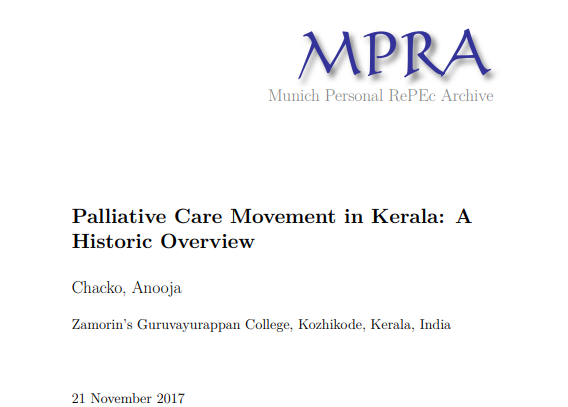Twenty years of home-based palliative care in Malappuram, Kerala, India: a descriptive study of patients and their care-givers
The community-based palliative care program in Kerala, India, initiated in 1996 in Manjeri, Malappuram, has evolved over two decades as a model of effective home-based palliative care. This study examines patient demographics, care patterns, and outcomes from 1996 to 2016, alongside caregiver dynamics between 2013 and 2015. Initially focused on cancer patients, the program expanded to include chronic illnesses like cerebrovascular accidents, dementia, and severe mental health issues, reflecting changing healthcare demands. Among 5614 patients enrolled over the study period, 96% had caregivers, predominantly women, emphasizing the program's reliance on familial support. Analysis reveals high retention rates and the critical role of home-based interventions, with physicians and nurses conducting regular visits. Factors influencing care discontinuation included younger age and fewer professional visits, while chronic conditions like CVA prompted higher retention. Manjeri’s pioneering approach underscores the adaptability of community-driven care systems in resource-limited settings and serves as an exemplary model for addressing the global burden of non-communicable diseases through localized solutions.




Comments
Post a Comment